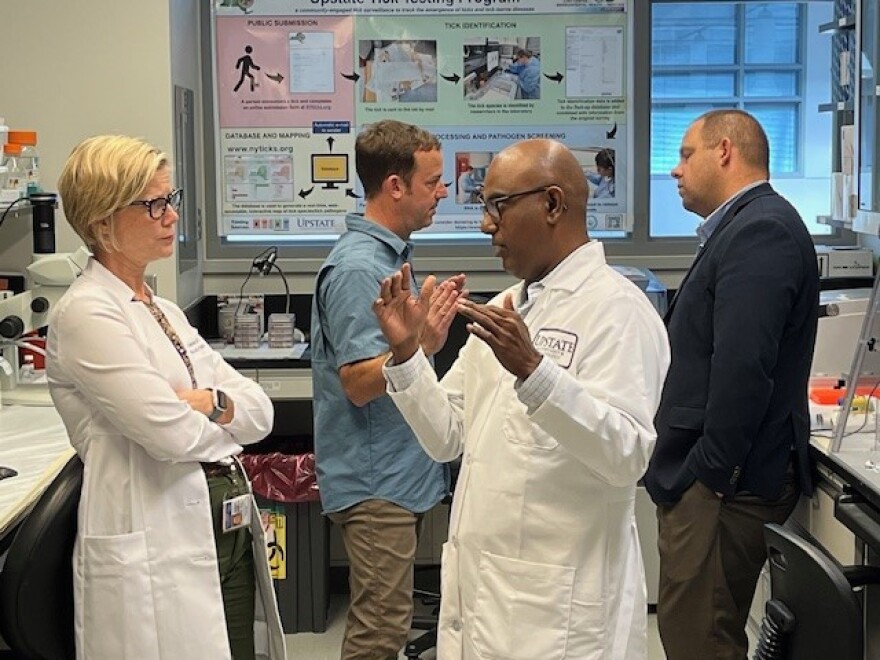Local governments across Central and Upstate New York could be in line for federal funding to address the growing presence of mosquito-borne diseases. Multiple mosquito pools in Onondaga County have tested positive for Eastern Equine Encephalitis and West Nile Virus this summer, and one person recently died from EEE in Ulster County. Senate Majority Leader Chuck Schumer stopped in Syracuse Tuesday to request $65 million for mosquito-borne disease programs run by the Centers for Disease Control.
“Increasing the federal funding for this program is important," Schumer said. "As global warming changes our environment, these vector borne diseases change in how they spread and how they grow. Getting that up-to-date information and coordinating it across the country is very, very important.”

Schumer is also asking federal agencies to step up coordination efforts with state and local communities to survey and track mosquitoes.
Dr. Saravanan Thangamani is director of the SUNY Center for Environmental Health and Medicine, and Vector Biology Laboratory. He says climate change is a major factor.
“Warmer temperatures can enhance the reproduction rate of mosquitoes," Thangamani said. "The primary vectors of West Nile virus high temperature can also shorten the virus incubation period in the mosquitoes, increasing the likelihood of transmission and also changes in the rainfall patterns can create more standing water. Ideal breeding sites for mosquitoes, so both heavy rainfall and drought can contribute to these situations.”
Thangamani says early detection of disease in mosquitoes through robust monitoring can significantly reduce transmission rates and prevent widespread outbreaks among humans.




